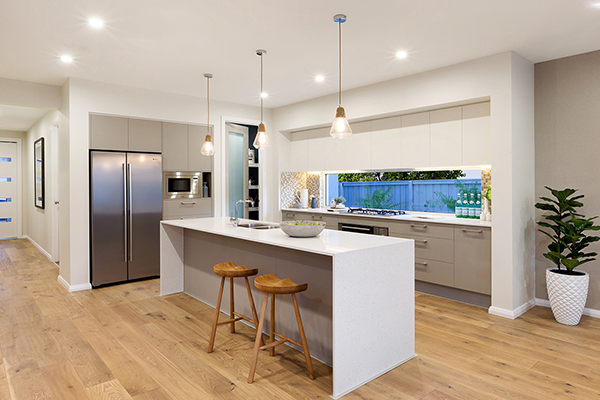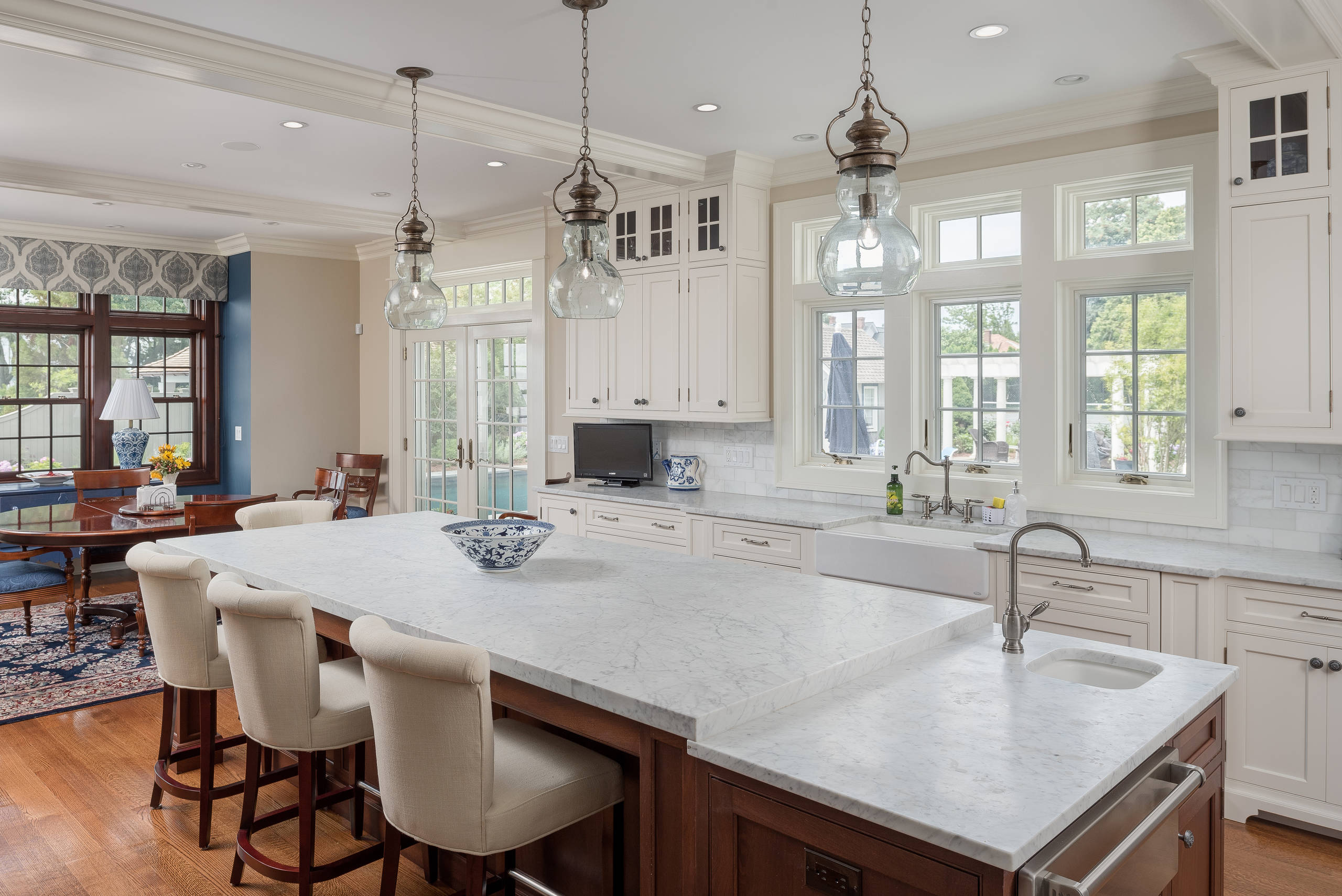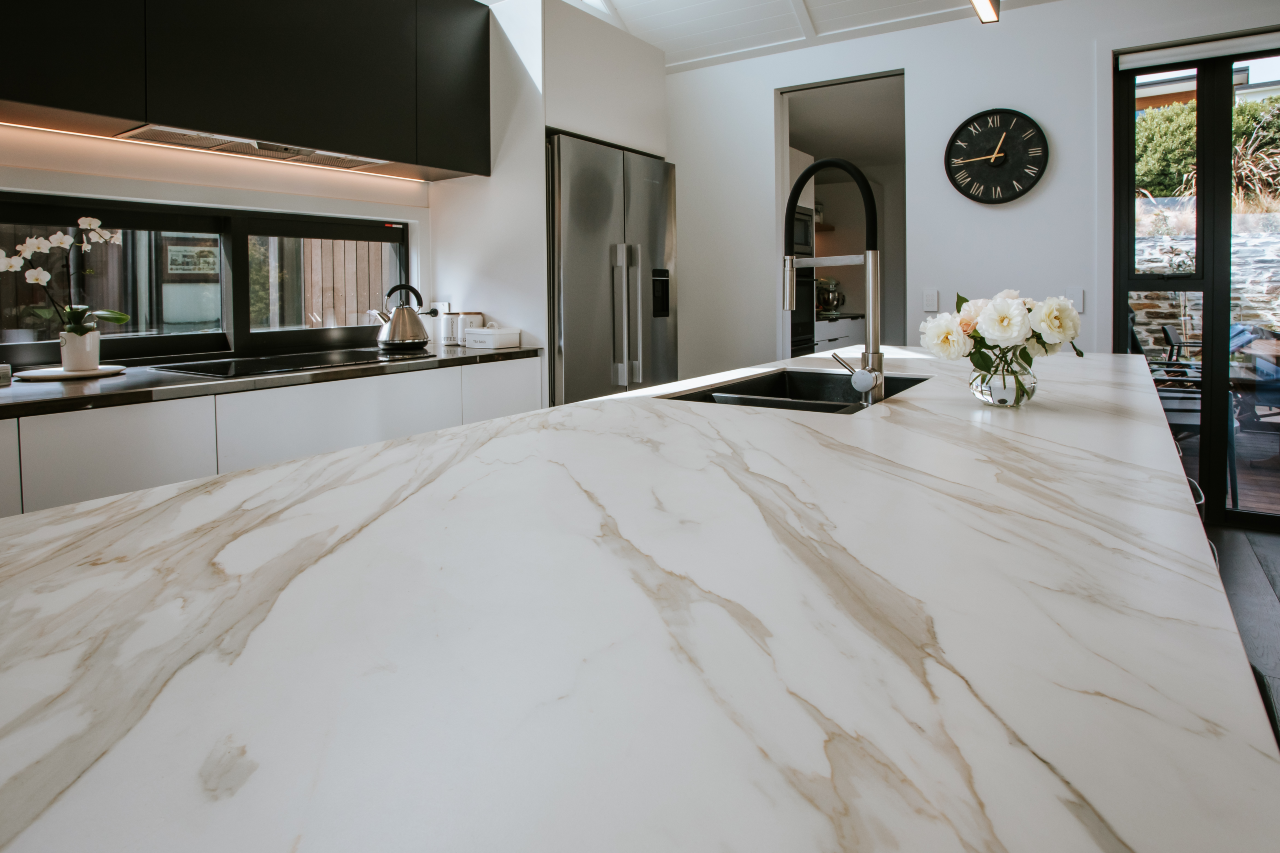Vital Tips for Keeping Your Cooking Area Benchtops for Long-lasting Appeal
Preserving the appeal and longevity of your cooking area benchtops needs a thoughtful technique to care and cleansing. With numerous materials and finishes available, the appropriate methods might differ-- discovering these subtleties could reveal unforeseen understandings for your kitchen area care routine.
Routine Cleaning Up Practices
Keeping an immaculate cooking area benchtop begins with applying routine cleansing techniques. This easy practice not only keeps the benchtop looking fresh yet also decreases the danger of contamination.
In addition to day-to-day upkeep, a weekly deep clean is suggested. Throughout this process, consider making use of a more extensive solution, such as a mild multi-surface cleaner, to deal with any persistent stains or deposits. For materials like granite or quartz, it is essential to adhere to maker recommendations for cleansing products to protect their honesty.
Pay special interest to high-traffic areas where spills are more probable to happen, and do not forget to clean the edges and edges where dirt can collect. Regular cleansing not only improves the durability of your kitchen benchtop however additionally makes sure a risk-free and welcoming cooking environment. By creating these behaviors, homeowners can preserve the charm and functionality of their kitchen area surface areas over time.
Preventing Rough Chemicals
When it comes to cleaning up cooking area benchtops, choosing the appropriate cleaning products is extremely important (Kitchen Benchtops). The longevity and aesthetic charm of your benchtops can be significantly endangered by the use severe chemicals. Lots of standard cleaning agents include abrasive materials that can scratch and plain surfaces, resulting in unpleasant marks and a decrease in their general lifespan
Moreover, severe chemicals can react negatively with details products, such as natural stones or engineered surfaces, potentially leading to discoloration or deterioration. For instance, acidic cleaners can wear down the surface of granite or marble, while bleach can harm artificial surface areas. It is crucial to opt for pH-balanced, mild cleansing solutions that efficiently eliminate dirt and stains without taking the chance of injury to your benchtops.
Furthermore, numerous environmentally friendly products are offered on the market, which not only use safe cleaning options but also add to a much healthier kitchen area environment. If you prefer a DIY method, a mix of warm water and moderate soap can be extremely effective (Kitchen Benchtops). By avoiding rough chemicals, you can preserve the beauty and honesty of your cooking area benchtops for many years to come
Utilizing Cutting Boards
Making use of reducing boards is crucial for securing your cooking area benchtops from scrapes and damages while preparing food. These boards serve as a barrier in between your knives and the surface area of your benchtops, substantially decreasing the risk of undesirable marks and use. It is a good idea to use a cutting board made from products such as timber, bamboo, or plastic, as each offers distinct advantages.
Wooden cutting boards are recognized for their toughness and knife-friendly homes; they can assist maintain your blades sharp. Bamboo boards are a green option that is light-weight and immune to knife scars. Plastic cutting boards, on the various other hand, are easy to tidy and often dishwashing machine secure, making them a practical choice for day-to-day use.

Sealing and Shielding Surfaces
Shielding your kitchen benchtops extends beyond making use of reducing boards; sealing the surfaces plays a critical role in protecting versus discolorations, moisture, and wear. The appropriate sealer can boost the sturdiness of materials, such as granite, quartz, and wood, guaranteeing they preserve their visual charm in time.

Application of the sealer need to be executed in a clean, completely dry atmosphere, following the supplier's instructions for ideal outcomes. Usually, this involves cleaning up the surface thoroughly, using the sealant equally, and More Bonuses permitting it to cure as advised. Regular maintenance, including resealing every 1-3 years depending upon use and material, will boost protection and lengthen the life of your benchtops, guaranteeing they remain a sensational focal factor in your cooking area.
Attending To Spots Quickly
Discolorations on kitchen area benchtops can promptly become a substantial problem if not resolved quickly. The longer a stain remains, the harder it ends up being to get rid of, possibly bring about permanent staining and damage to the surface area. For that reason, it is imperative to tackle spills and spots as quickly as they happen.
Various products need particular techniques to tarnish removal. For example, non-porous surface areas like quartz can typically be cleansed with moderate soap and water, while permeable materials, such as all-natural stone, may need specific cleaners to avoid fluid penetration. Always refer to the manufacturer's guidelines for the finest cleaning practices.

Routine upkeep, including sealing porous surfaces, can dramatically decrease the risk of discoloration. By immediately attending to spills and understanding the specific needs of your benchtop product, you can preserve the visual allure and functionality of your cooking area surfaces for several years ahead.
Final Thought
To conclude, keeping the charm and performance of cooking area benchtops calls for adherence to necessary cleansing practices, evasion of go to these guys harsh chemicals, and using protective steps such as cutting boards. Regular securing of porous products and timely attention to spills and stains are crucial for preserving the integrity of surfaces. By implementing these methods, the durability and aesthetic appeal of kitchen benchtops can be considerably enhanced, ensuring a pristine and resilient cooking atmosphere.